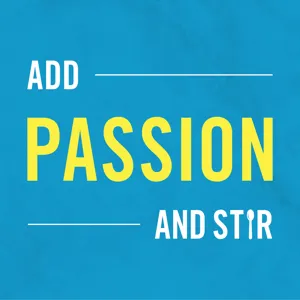Podcast Summary
Millions of Americans Lose Crucial Benefits Post-Pandemic: The end of pandemic-related emergency declarations resulted in the loss of essential benefits like Medicaid coverage and food assistance for millions, pushing many back into poverty.
The end of pandemic-related emergency declarations has led to millions of Americans losing crucial benefits, including Medicaid coverage and expanded food assistance, leaving them struggling to afford basic necessities like healthcare and food. For instance, Joshua Davis in New Mexico, who was recently kicked off Medicaid despite having an autoimmune disease, now faces expensive treatments and mounting premiums for private insurance. Similarly, single mother Angel Jackson in Houston saw a significant reduction in food assistance benefits, leaving her with limited resources to provide for her family. The expiration of these programs has put many Americans back into poverty, highlighting the importance of a robust social safety net.
Government support during COVID-19 crisis: The government provided relief packages with simplified access, helping families in crisis during the pandemic, but many families continue to struggle with basic needs
During the COVID-19 pandemic, the government implemented various support packages to help individuals and families in need, including free school lunches for all public school students, stimulus payments, increased unemployment benefits, and the Paycheck Protection Program. Many of these benefits were designed to be accessible without requiring extensive paperwork or applications, recognizing that people in crisis situations might not have the time or resources to navigate complex systems. The CARES Act, a $2.2 trillion economic stimulus bill, was a significant part of this relief effort. These measures were crucial in helping families, like that of Amy Bauschert, who suddenly found themselves in financial hardship due to job losses during the pandemic. However, it's important to remember that many families are always living paycheck to paycheck and would struggle to cover their basic needs even without a crisis.
Social safety net programs made a difference during pandemic: Expanded Child Tax Credit and SNAP provided relief, but SNAP expired and Medicaid recertification caused losses, contributing to economic stability and lower inflation
During the pandemic, several social safety net programs, including the expanded Child Tax Credit and the Supplemental Nutrition Assistance Program (SNAP), made a significant difference for families living below the poverty line. The expanded Child Tax Credit provided much-needed financial relief, allowing families to pay for basic necessities and reduce debt. SNAP, which was expanded to cover families' food budgets, also made a substantial impact but has since expired, leaving millions of people without this crucial assistance. Another program, Medicaid, saw continued access during the pandemic but has since reinstated recertification hurdles, causing many to lose coverage. Economists argue that these investments in children and the workforce not only help individuals but also contribute to long-term economic stability and lower inflation rates. Despite these benefits, political reasons, including concerns over inflation and work requirements, have hindered the extension of these programs.
Impact of Child Tax Credit expansion on poverty and workforce participation: The Child Tax Credit expansion, which provided regular payments to families, significantly reduced poverty and encouraged workforce participation. Reverting to a less effective system with work requirements and lump sum payments after the year end, makes it harder for families in poverty to access the benefits.
The Child Tax Credit expansion, which provided families with regular payments to help with the costs of raising children, had a significant impact on reducing poverty and encouraging workforce participation. However, the recent reversion to the old system, which includes work requirements and only provides the credit as a lump sum after the end of the year, is less effective for families living in poverty. This is because these families often face numerous expenses that make it difficult to earn enough money to qualify for the full credit. Additionally, the automatic payments based on already filed tax returns were crucial in ensuring that the benefits reached those in need, as opposed to a more bureaucratic system that would require ongoing paperwork and application processes. Overall, the expansion of the Child Tax Credit demonstrated the importance of regular, accessible financial support for working families, and the challenges of reverting to a less effective system.
Expansion of child tax credit goes against traditional approach: States are enacting expanded child tax credits, aiming for consistent benefits for children and families nationwide, despite challenges in the current political climate.
The expansion of the child tax credit during the 2021 tax season was unique as it went against the traditional approach of implementing and testing such programs at the state and local level before adopting them nationally. The professor suggests that we are now back to building momentum at the state and local level, with some states enacting expanded child tax credits on their own. The ultimate goal is to ensure that children and families receive consistent benefits regardless of their location. The professor also acknowledges the challenges of reinstating such programs at the national level in the current political climate. Therefore, the focus is on the long-term goal of achieving national momentum for universal child tax credits.
Affordable wireless plans from Mint Mobile starting at $15 a month: Mint Mobile offers premium wireless plans for just $15 a month, saving you money on your wireless bill
In today's inflationary environment, finding affordable solutions to everyday expenses is crucial. Mint Mobile understands this, which is why they're offering premium wireless plans starting at just $15 a month. This is a significant savings compared to many other providers. To take advantage of this offer, simply visit mintmobile.com/switch. Whether you're filling up at the gas pump or stocking up at the grocery store, every dollar counts. With Mint Mobile's affordable pricing, you can save on your wireless bill while still enjoying high-quality service.






